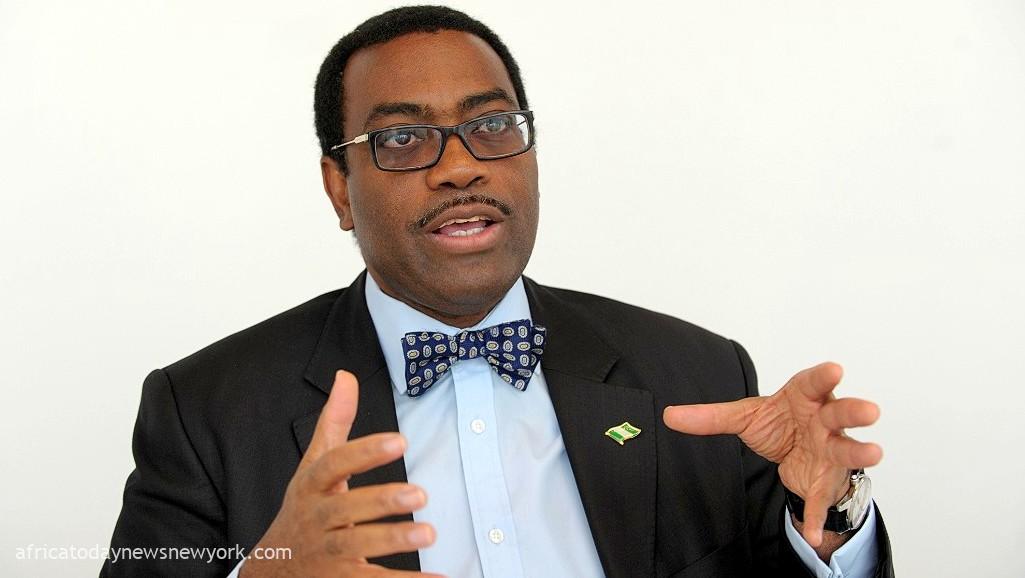The President of the African Development Bank Group, Dr. Akinwumi Adesina, cautions that the proposed EU carbon border tax has the potential to impede Africa’s trade and industrialization strides, penalizing vital value-added exports such as steel, cement, iron, aluminum, and fertilizers.
Adesina said, ‘With Africa’s energy deficit and reliance mainly on fossil fuels, especially diesel, the implication is that Africa will be forced to export raw commodities again into Europe, which will further cause the de-industrialization of Africa.’
‘Africa could lose up to $25 billion per annum as a direct result of the EU Carbon Border Tax Adjustment Mechanism,’ the Bank President told delegates at the Sustainable Trade Africa Conference held at the UAE Trade Centre in Dubai.
Delegates at the Sustainable Trade Africa Conference in Dubai were addressed by the Bank President, who shared valuable insights at the UAE Trade Centre.
‘Africa has been short-changed by climate change; now it will be short-changed in global trade,’ the Bank President said.
‘Because of weak integration into global value chains, Africa’s best trade opportunity lies in intra-regional exchanges, with the new Africa Continental Free Trade Area estimated to increase intra-Africa exports over 80% by 2035.’
Adesina stressed that Africa was already being overlooked in the global energy transition, according to data from the International Renewable Energy Agency.
‘Africa received just $60 billion or 2% of the $3 trillion of global investments in renewable energy in the past two decades, a trend that will now impact negatively on its ability to export competitively into Europe,” said Adesina as he called for what he termed the Just Trade-for-Energy Transition (JTET) policies, which would enable Africa’s renewable ambitions without restricting its trade prospects.’
Read also: To Fight Climate Change, Africa Proposes Global Carbon Taxes
Adesina underscored the strategic role of natural gas as a transitional fuel in mitigating renewable energy variability, vital for stabilizing Africa’s energy systems during the pursuit of industrialization.
Contrary to the common belief that Africa is a perilous and challenging business landscape, Walid Mohammed Hareb Alfalahi, CEO of the UAE Trade Centre, declares the continent as the emerging frontier for investment.
‘What you hear about Africa is not the reality. I see the potential in Africa. I see the possibilities to do more,’ said Alfalahi as he recounted his positive experience of investing in a number of projects on the continent.
Adesina said a report by Moody’s Analytics showed that Africa had the least default rate on investment in infrastructure compared to other parts of the world.
According to the report, Africa’s default rate stands at 5.5 per cent, compared to Latin America’s 12.9 per cent, followed by Asia at 8.8 per cent, Eastern Europe 8.6 per cent, North America 7.6 per cent, and Western Europe 5.9 per cent.
Adesina further noted some of the mega projects that had attracted investor interest through the Africa Investment Forum that was created by the African Development Bank and seven other founding partners.
The projects include Mozambique’s $24 billion liquefied gas project, the $15.2 billion Abidjan to Lagos Highway corridor covering 5 countries and the $3.6 billion Tanzania to Burundi and DR Congo railway line.
‘I’m talking about a different Africa. There is no project that as partners, we cannot handle,’ said Adesina.
The conference, moderated by the African Development Bank President’s Senior Adviser for Communication, Dr Victor Oladokun, was also addressed by the President of the African Export-Import Bank, Afreximbank, Professor Benedict Oramah.
He warned, ‘Preliminary results of a study recently commissioned by Afreximbank reveal that rapid decarbonisation by fossil fuel-exporting countries in Africa could cut merchandise exports by $150 billion.’

